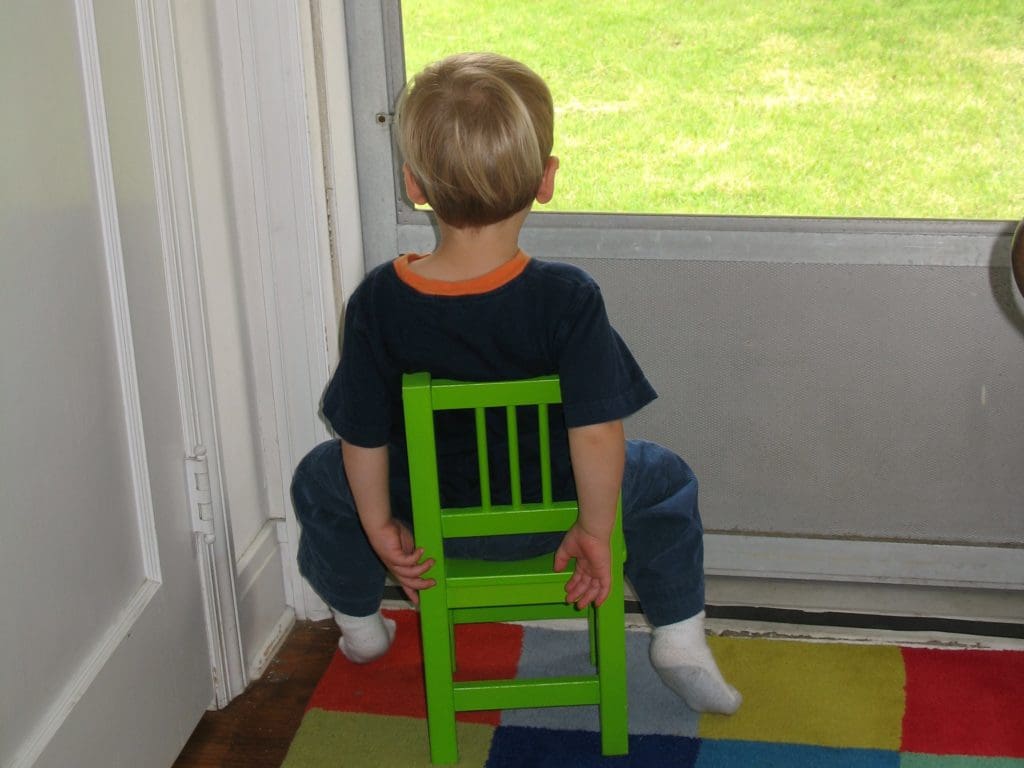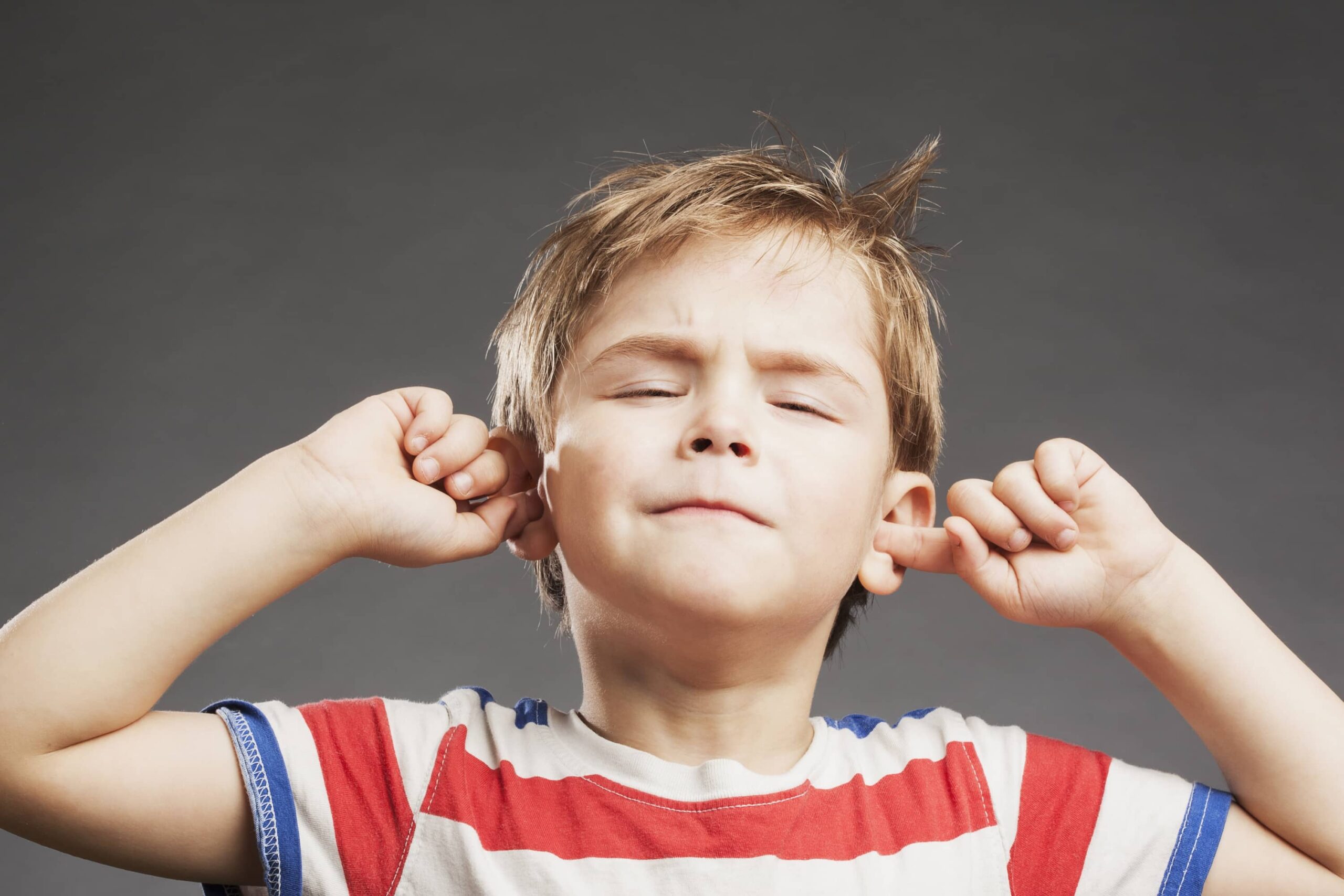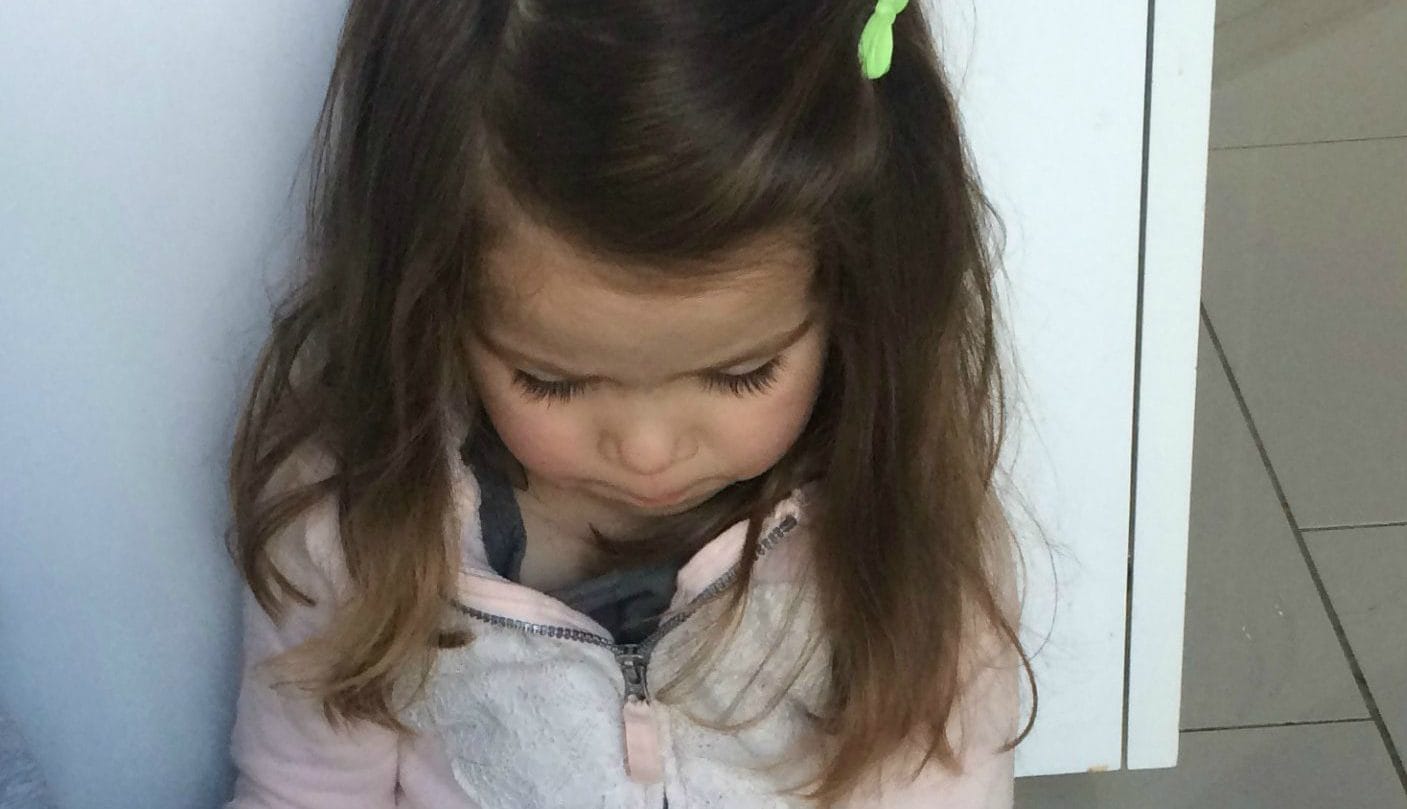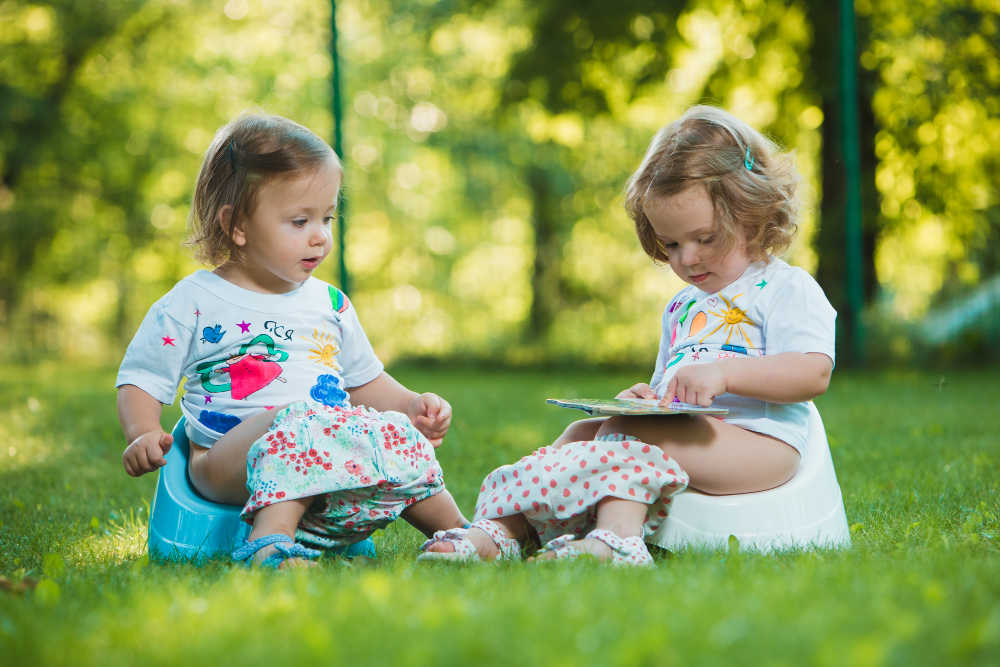When we entered into a cycle of timeouts and my son’s behavior only got worse, this approach changed everything. Our family is more peaceful and happier than before.
When my second son was born, my two-year-old son started acting out. Before the baby’s arrival, our days were filled with building forts and laughter. I was the center of his world. And he was mine.
Shortly after coming home the hospital. My big boy’s demeanor changed.
I didn’t want to make matters worse. I was under the impression that good parents stopped difficult behavior from happening. In order to have my son comply, I needed to punish him consistently. If he wasn’t listening, my response should be to send him to a designated spot and disconnect from him until he was ready to listen.
So, I set up a green time-out chair at the end of our hallway and sent him there every time he was defiant.

We entered into a cycle of endless time-outs.
No matter how swiftly I punished him, he became more challenging.
I tried harder. I used every parenting strategy that was suggested to me such as behavior charts and counting to three.
Nothing made things better. In fact, every time I put him in that little green time-out chair, his heart broke a little more and his behavior got a little worse.
Then it hit me.
My son wasn’t defiant. He was disconnected. His world was turned upside down. He needed me. I needed to heal the hurt he was feeling and regain the place I once had in his heart.

How parenting with heart changed everything
It was the pivotal lesson in my parenting journey. When we are focused on getting our children to comply above all else, we often drive a wedge in our children’s feelings of connectedness or having our child’s heart. Moreover, we fail to look at what is creating the difficult behavior.
What does it mean to have our children’s hearts and why is it important? Don’t we automatically have it just because we take care of them?
When we have a child’s heart, they are securely attached to us which is essential for healthy development. As I explain in The Positive Parenting Workbook children are hardwired to connect on a biochemical level. If that connection isn’t there, the brain may not develop as it should. Failure to develop a secure attachment may result in behavioral problems and relationship troubles later in life.
These are signs your child is securely attached:
- She is somewhat upset by your departure but trusts that you will return.
- She expresses joy when you return.
- He’s generally happy to be around you.
- He looks for you when startled or upset.
- She uses you as a “secure base,” keeping track of you during exploration.
Attachment is formed by being lovingly responsive to your child’s needs, no matter what age he or she is. The term attachment parenting may call to mind images of an infant nestled in a cloth wrap, nuzzled against his mother’s breast, but attachment lasts far beyond infancy. In fact, we never outgrow our need for connection and security.
It is possible to provide for a child’s physical needs but still not have their hearts. They love their parents, but to truly give their heart away, they must have full trust in the parent to read and take care of their emotional needs as well. Dr. Deborah MacNamara puts it like this:
How do we invite our children to give their hearts to us? By giving them more contact and closeness than they desire and a sense of belonging and loyalty. We need to convey that they matter and are significant to us by engaging fully with them and caring for them in unexpected ways. We cannot expect a child to fall deeply into attachment unless we have been generous in our care taking and have read their needs and responded.
When we focus on attachment and love, our child feels loved, connected, and secure so that they can grow and develop as intended. But that’s not the only benefit. This is also what gives us our authority and influence as parents. Dr. Gordon Neufeld says that we were never meant to parent a child who does not feel connected to us. That’s because, without their heart, we must rely on tricks, consequences, punishments, and threats. When we don’t have our natural authority which comes through relationship and attachment, we must force our authority which may get us temporary compliance but has real emotional and relational consequences for our children.
The following is an excerpt taken from my new book:
Connecting Through Acts of Love
You feel love for your child that is deeper than you ever imagined. Of course, you do! But it’s not the amount of love you feel for your child so much as the amount your child feels loved that builds trust and connection. You love your child immensely, but if you’re not speaking his love language, if you’re not acting in ways that make your love seen, heard, and felt, that love may not be reaching his heart the way it needs to. Trust flourishes and connection deepens when a child feels deeply and unconditionally loved.
The following are some acts of love that may reach the heart of your loved one:
- Make up a special secret handshake between the two of you.
- Give an endearing nickname.
- Give back rubs or foot massages.
- Hold hands when walking side by side.
- Offer hugs and cuddles after correction.
- Leave notes in her lunch box.
- Tell him why you like him.
- Verbally affirm her positive actions.
- Leave him cards or love notes.
- Say I love you first and often.
The Positive Parenting Workbook is filled with more tips like this along with questions and journal prompts to help you let go of punishment and grow into the parent you want to be. Remember, having a child’s heart makes her easier to parent and gives her the best chance to reach her full potential. The goal of good parenting isn’t to change a child’s behavior; it’s to reach his heart. When I ditched the green chair and brought my son into my lap we finally began connecting, we finally got on track to understanding and connection. It changed everything.












Very nice read. My daughter was recently diagnosed with ADHD through this ADHD assessment test that she had undergone. She has her ups and downs. Sometimes her tantrums make it too much for me. Been looking for resources on how to handle it and found your page. Thank you for this.
i would have layed him over the chair and taken a spoon to his bare bottom.